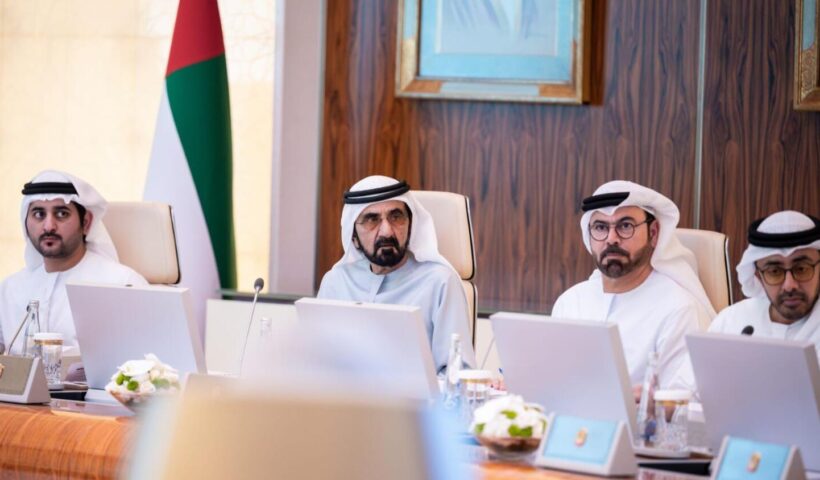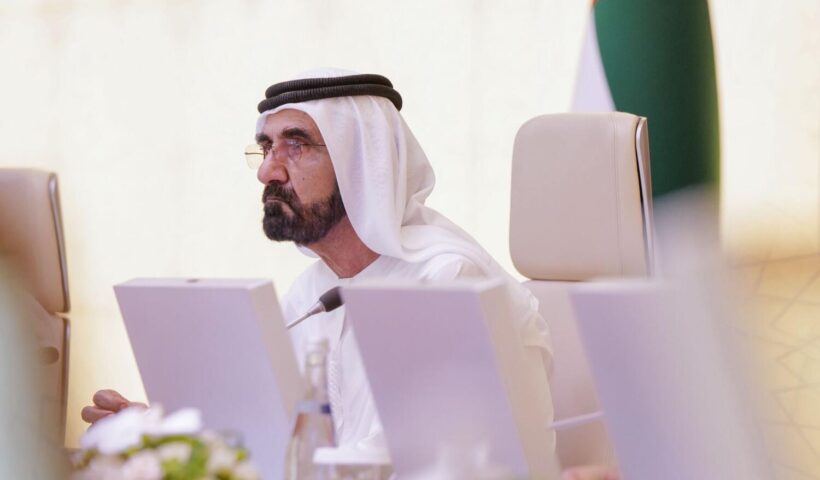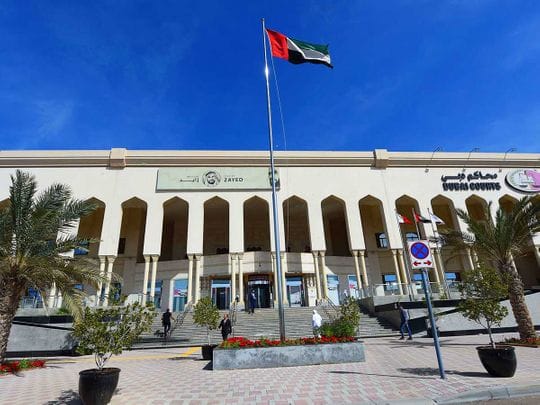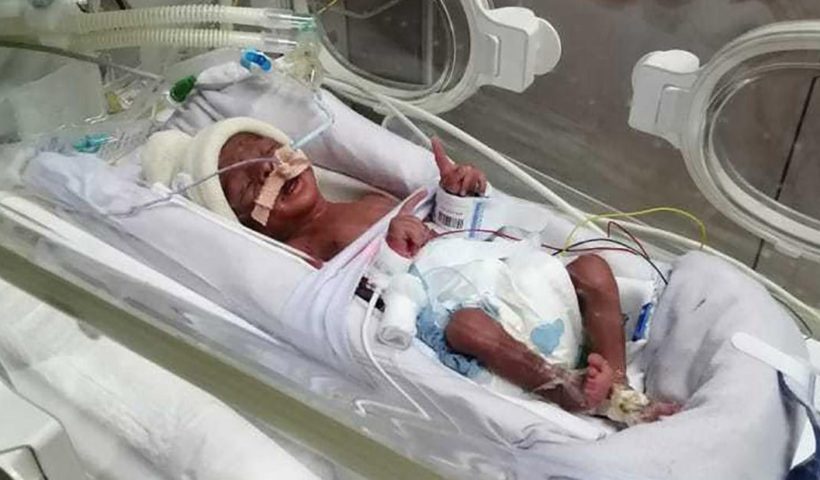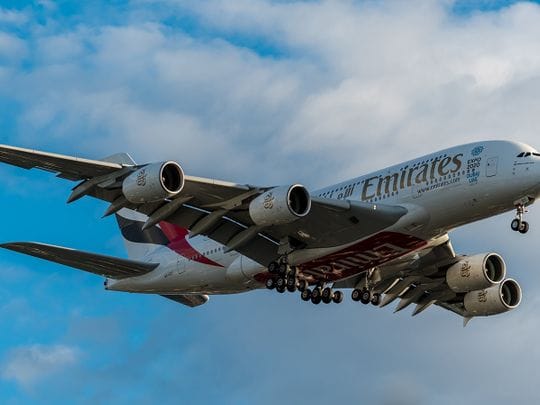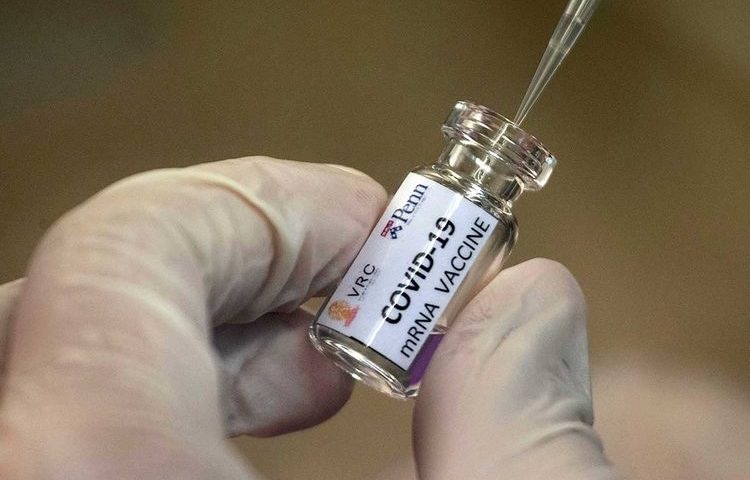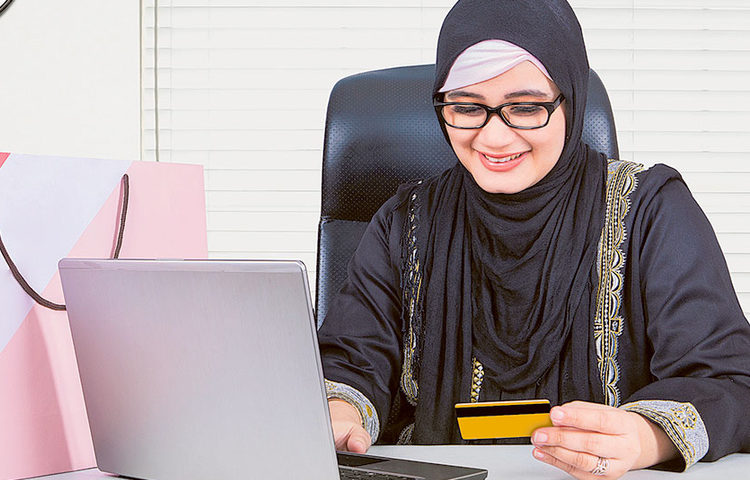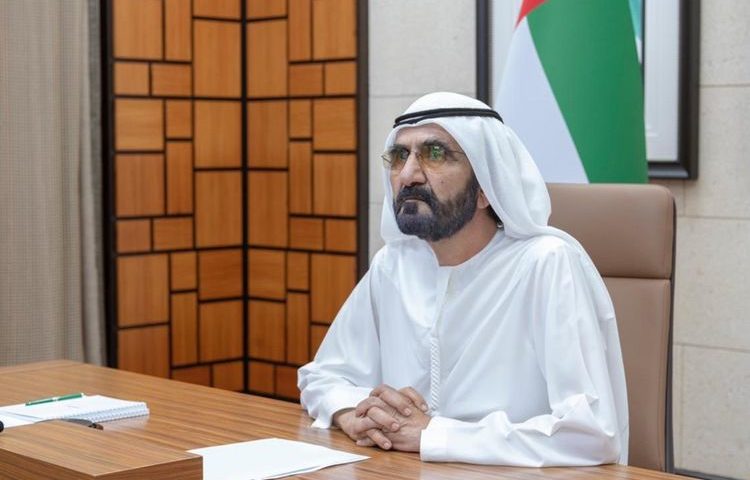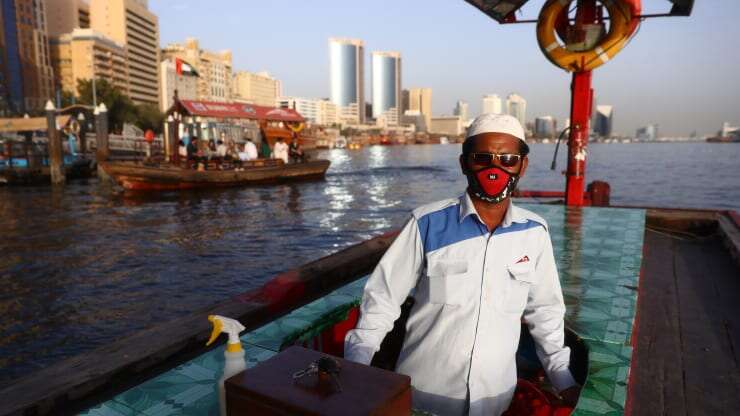His Highness Sheikh Mohammed bin Rashid Al Maktoum, Vice President and Prime Minister of the UAE and Ruler of Dubai, has said that as the country and the world face testing times during the coronavirus pandemic, the 44th anniversary of the UAE Armed Forces’ Unification Day comes as a reminder of this nation’s “perseverance” and “ability to overcome challenges.”
In a statement to the UAE’s military journal, Nation Shield, on the occasion, which is observed on May 6 every year, Sheikh Mohammed said, “Today, as we face unprecedented testing times – as is the entire world – the memory of the unification of our armed forces comes to strengthen our belief in our ability to move forward and in successfully overcoming this test.”
He added that the day “shines a ray of light amidst the darkness we are experiencing”, in reference to the pandemic.
Sheikh Mohammed has also affirmed that international cooperation has never been more needed, as the world is facing the COVID-19 crisis.
The statement in full is as follows:
Honourable sons and daughters of the nation,
Today, we remember the unification of our armed forces, and this year, we are marking the day during the holy month of Ramadan. It shines a ray of light amidst the darkness we are experiencing from the coronavirus; highlighting the good and giving in our homeland, and the good character of Emiratis, and their incomparable determination.
On this anniversary, we remember our Founding Fathers and their ability to conquer challenges, and reminisce on history of our armed forces, and its victorious track record since its unification on this day in 1976, by our father – the symbol of goodness, giving, building and achievement – the late Sheikh Zayed bin Sultan Al Nahyan.
Today, we remember our children, who have died in the battlefields and have risen as martyrs, with appreciation and gratitude.
This occasion holds a special place in my heart, not only because I have lived through the early process of the unification of our armed forces, participated in its growth, kept pace with its various stages of development, and its progresses, but also because I enjoyed watching the active role the armed forces played in our country and society, as well as its success in integrating the civil, economic, cultural and psychological aspects of our Emirati model.
Moreover, our armed forces have excelled in protecting our security, stability, sovereignty and independence, and strengthening Emirati identity. It also succeeded in creating national human resources, affirming the merit and efficiency of the sons and daughters of the UAE, and embodying the principles of self-reliance.
And today, as we face unprecedented testing times – as is the entire world – the memory of the unification of our armed forces comes to strengthen our belief in our ability and perseverance to move forward, and in successfully overcoming challenges and this particular test.
The unification of the UAE Armed Forces goes hand in hand with the unification of the seven Emirates and the establishment of the United Arab Emirates. The Union’s survival depended on the unification of its armed forces, which proved to all, both locally and internationally, that the Union does not regress, and that its leadership is determined to consolidate its rules, build it up, and move it forward.
Officers, soldiers and citizens,
Over the past centuries, this region has been plagued by various types of epidemics, that would suddenly emerge and disappear without people knowing their source and the reason for their end. In the first half of the twentieth century, cholera, the plague, and other diseases have claimed the lives of thousands of people in the region.
There were no doctors, no treatment, and no vaccines. Nonetheless, our ancestors confronted these epidemics with courage, solidarity and altruism, and they overcame their ordeals. They stood up and continued to endure the difficult environment and harsh climate, and built, lived and preserved this land.
And today, the sons and daughters of the Emirates have risen as their ancestors before them, to confront this epidemic that swept the whole world.
Our healthcare and security sectors have seamlessly integrated into a working unit that operates harmoniously; providing an exemplary model for comprehensiveness, effectiveness and discipline.
Today, I extend my thanks and appreciation to my brother His Highness Sheikh Mohamed bin Zayed Al Nahyan, Crown Prince of Abu Dhabi and Deputy Supreme Commander of the UAE Armed Forces, for his generosity and his wise leadership and management of the national effort made in the face of this pandemic.
Under the directives of His Highness to the Supreme Council for National Security and the National Crisis and Emergency Management Authority, and with his relentless work on control measures, our country was able to control the spread of the virus, unlike what unfortunately happened in other countries, most of which are developed nations.
The past four months have been very difficult for all countries and peoples of the world. The negative effects of the pandemic are still emerging. Sometimes, it seems as if time had stopped and revolved only around this mysterious virus.
For us, these months, which may extend to many more, are a test of our ability to bear and adapt to preventive measures, and the readiness of our institutions, the merit of our plans, and our preparations to deal with pandemics and their economic and social repercussions. It is also a test of our health, security and service infrastructures, the efficiency of our banking system, and an examination of our awareness, patience and social solidarity.
We have succeeded in all these tests, but this success is not final. Ahead of us and the entire world, are still major questions that await answers. Questions remain about the source of this pandemic, the secrets of its rapid spread and transmission from one country to another, from one continent to another, to ships in the high seas, and to remote areas on the tip of the earth.
Until further notice, the specter of pandemics will continue to haunt our globe, and will affect human behaviour, priorities and ways of life. It will be at the forefront of the concerns of countries and the world at large, mainly for ensuring that history does not repeat itself.
These past four months have proven that nations have never needed to cooperate with each other as much as they need to today.
Earlier, I said that the world remained for years questioning: which leads the other? Does politics lead economics or does economics lead politics? And which is the cart, and which is the horse? We found in the time of the coronavirus that the horse and its carriage are both carried and lead by health. And so, I ask now, is it possible that in the aftermath of this pandemic that health services do not advance to the top of national priorities in every nation in the world? Can states, whatever their economic system, compromise the centrality of their role in providing adequate preventive and curative services to all their citizens?
Will the role of the World Health Organisation, WHO, remain marginal and with scarce resources? And is it not time for everyone to realise that limiting environmental pollution and global warming is not just scientific dueling or tools in economic competition, but is a real and crucial issue that if ignored will lead to disaster for all?
In any case, humanity’s efforts, including that of scientists, researchers, doctors and nurses to defeat the pandemic will succeed. But what about the economic and social repercussions? How will the countries of the world face them and what will the bet be on?
Of course, every country is responsible for itself, but the reality of mutual dependence between the countries of the world, the size of the huge interdependence between their economies and the reality of contagion that does not recognise borders and distances, will not enable a country, whatever its capabilities, to face the consequences on its own. There is no substitute for international cooperation that rises above excessive selfishness, and the blind seeking of wealth and influence.
With regard to us in the UAE, we know our size and we realise that our voice is heard and our model is a subject of interest and respect, and one of the principles of our approach is our constant endeavor to expand areas of cooperation with countries of the world and with international and regional organisations.
Despite the challenges brought on by the pandemic, and the global economic downturn during the past four months, which followed years of a slowing world economy and a decline in international trade, our country has maintained its position as one of the top countries that provide developmental assistance, and has actively participated in international efforts to combat the pandemic, providing thousands of tonnes of medical aid to those who request or need it.
Officers, soldiers, and citizens,
We in the UAE are confident in our ability to absorb the effects of this pandemic and learn lessons from its repercussions at all levels, and resume the path of growth and progress, relying on the abundant sources of our self-power, with our people in the forefront, the unity of our home, the efficiency of our military and civil institutions, the strength and diversity of our economy’s assets, the superiority of our infrastructure, and our involvement in the digital age.
I congratulate my brothers and children of the armed forces on this occasion that is dear to our hearts, I congratulate our sons and daughters, and I extend my congratulations to my brother, President His Highness Sheikh Khalifa bin Zayed Al Nahyan, and to His Highness, the Crown Prince of Abu Dhabi, and to my brothers, Their Highnesses, Members of the Supreme Council, and Rulers of the Emirates.


